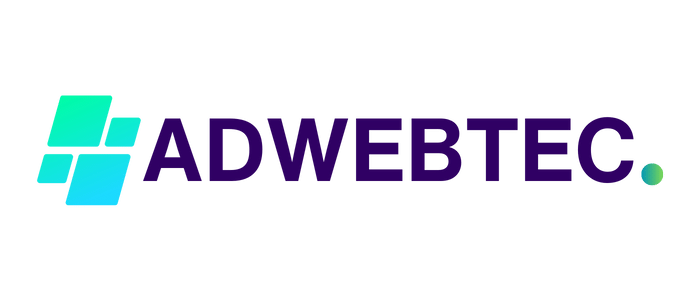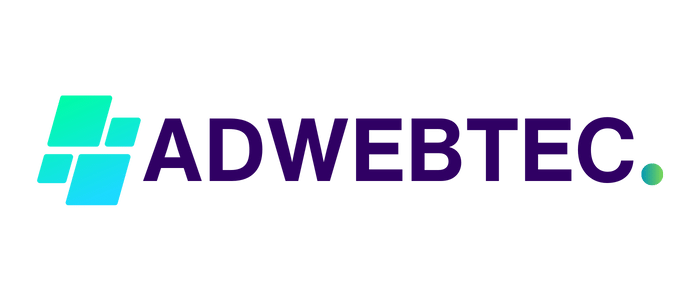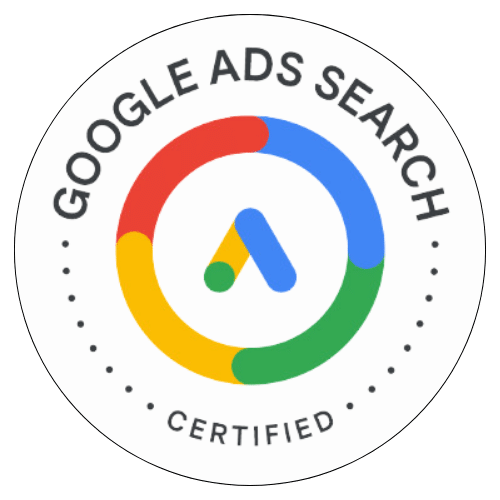Pay-per-click (PPC) advertising is a powerful tool for businesses looking to boost their online presence, drive traffic, and ultimately, increase sales. As the best digital marketing agency in Pune, AdWebTec has extensive experience in creating and managing successful PPC campaigns. In this comprehensive guide, we will share valuable insights and practical tips to help you maximize your return on investment (ROI) from PPC advertising. We’ll cover everything from understanding the basics to advanced strategies, all while incorporating our focus keywords to ensure maximum SEO benefit.
Table of Contents
- Introduction to PPC Advertising
- Understanding PPC Metrics
- Setting Up a PPC Campaign
- Keyword Research and Selection
- Crafting Effective Ad Copy
- Landing Page Optimization
- Utilizing Ad Extensions
- Bidding Strategies
- Monitoring and Adjusting Your Campaign
- Advanced PPC Techniques
- Case Studies
- Conclusion
1. Introduction to PPC Advertising
PPC advertising is an online marketing strategy where advertisers pay a fee each time their ad is clicked. Essentially, it’s a way of buying visits to your site rather than attempting to “earn” those visits organically. As the best digital marketing agency in Pune, we have honed our skills to provide businesses with top-tier PPC services that drive results.
1.1. What is PPC?
PPC stands for pay-per-click, a model of internet marketing in which advertisers pay a fee each time one of their ads is clicked. It’s a method of buying visits to your site, as opposed to earning those visits organically. Google Ads is the most popular PPC platform, but others include Bing Ads, Facebook Ads, and LinkedIn Ads.
1.2. Why PPC is Important
PPC is crucial for businesses because it offers a fast way to get your brand in front of potential customers. Unlike SEO, which can take months to show results, PPC campaigns can start driving traffic almost immediately. For real estate companies in Pune, this means quickly reaching people interested in buying property.
1.3. How PPC Works
PPC works by targeting keywords relevant to your business. When users search for these keywords, your ad can appear in the search engine results. You only pay when someone clicks on your ad. This makes PPC a cost-effective way to attract qualified traffic to your site.
2. Understanding PPC Metrics
To maximize your ROI, it’s essential to understand the key metrics that determine the success of your PPC campaigns. These metrics provide insights into your campaign’s performance and help identify areas for improvement.
2.1. Click-Through Rate (CTR)
CTR is the ratio of clicks on your ad to the number of impressions (times the ad is shown). A high CTR indicates that your ad is relevant and appealing to users.
2.2. Cost Per Click (CPC)
CPC is the amount you pay for each click on your ad. Lowering your CPC while maintaining high-quality traffic is a primary goal of PPC management.
2.3. Conversion Rate
The conversion rate is the percentage of visitors who complete a desired action on your site after clicking your ad. This could be filling out a form, making a purchase, or signing up for a newsletter.
2.4. Quality Score
Quality Score is a metric used by Google Ads to determine the relevance and quality of your keywords and PPC ads. Higher Quality Scores lead to lower costs and better ad positions.
2.5. Return on Ad Spend (ROAS)
ROAS measures the revenue generated for every dollar spent on advertising. It’s a critical metric for assessing the effectiveness of your PPC campaigns.
3. Setting Up a PPC Campaign
Setting up a successful PPC campaign involves several crucial steps. As the best digital marketing agency in Pune, AdWebTec follows a systematic approach to ensure your campaigns are optimized for success from the start.
3.1. Defining Your Goals
Before you start, it’s important to define what you want to achieve with your PPC campaign. Common goals include increasing website traffic, generating leads, or boosting sales. Clear goals will guide your strategy and help measure success.
3.2. Choosing the Right Platform
Selecting the right PPC platform depends on your target audience and business goals. Google Ads is a great starting point, but platforms like Facebook, LinkedIn, and Bing can also be effective depending on your industry and audience.
3.3. Setting a Budget
Your budget will determine how much you can spend on clicks per day. It’s important to set a realistic budget that aligns with your goals and the competitive landscape of your industry.
3.4. Creating an Account and Campaign
Once you’ve defined your goals and chosen a platform, you can create your PPC account and set up your first campaign. This involves selecting your target keywords, creating ad groups, and writing your ad copy.
3.5. Structuring Your Campaign
Proper campaign structure is crucial for managing and optimizing your PPC efforts. Organize your campaigns into logical ad groups based on themes, products, or services. This makes it easier to manage and optimize your ads.
4. Keyword Research and Selection
Keyword research is the foundation of any successful PPC campaign. Selecting the right keywords ensures your ads reach the right audience at the right time.
4.1. Using Keyword Tools
There are several tools available for keyword research, including Google Keyword Planner, SEMrush, and Ahrefs. These tools help identify relevant keywords and provide insights into search volume, competition, and cost per click.
4.2. Identifying Long-Tail Keywords
Long-tail keywords are longer, more specific phrases that typically have lower competition and higher conversion rates. Including long-tail keywords in your strategy can help you attract more qualified traffic.
4.3. Analyzing Competitor Keywords
Analyzing the keywords your competitors are targeting can provide valuable insights. Tools like SpyFu and SEMrush allow you to see which keywords your competitors are bidding on and how much they’re spending.
4.4. Selecting Negative Keywords
Negative keywords are terms for which you don’t want your ads to appear. Adding negative keywords helps prevent your ads from showing to irrelevant audiences, saving you money and improving your ROI.
4.5. Grouping Keywords
Group related keywords into ad groups. This helps create more relevant ads and improves your Quality Score. Each ad group should focus on a specific theme or product.
5. Crafting Effective Ad Copy
Creating compelling ad copy is crucial for attracting clicks and driving conversions. As the best digital marketing agency for real estate in Pune, we understand the nuances of crafting ads that resonate with your target audience.
5.1. Understanding Your Audience
Knowing your audience is the first step in writing effective ad copy. Understand their needs, pain points, and what motivates them. This will help you create ads that speak directly to their interests.
5.2. Writing Compelling Headlines
Your headline is the first thing users see, so it needs to grab their attention. Use strong, action-oriented language and include your main keyword. For example, “Discover Your Dream Home in Pune – Best Real Estate Deals!”
5.3. Highlighting Benefits
Focus on the benefits of your product or service rather than just the features. Explain how it solves a problem or improves the user’s life. For example, “Save Time and Money with Our Expert Real Estate Services.”
5.4. Including a Strong Call-to-Action (CTA)
A strong CTA encourages users to take the next step, whether it’s clicking the ad, signing up for a newsletter, or making a purchase. Examples include “Get Started Today,” “Learn More,” or “Contact Us Now.”
5.5. Using Ad Extensions
Ad extensions provide additional information and can improve your ad’s visibility and CTR. Use extensions like site links, callouts, and structured snippets to enhance your ads.
6. Landing Page Optimization
A well-optimized landing page is essential for converting clicks into leads or sales. As the best digital marketing agency in Pune, we ensure that your landing pages are designed to maximize conversions.
6.1. Matching Ad Copy and Landing Page Content
Ensure that the content of your landing page matches the promise of your ad. Consistency between ad copy and landing page content helps build trust and improve conversion rates.
6.2. Simplifying the Design
Keep your landing page design simple and focused. Avoid clutter and distractions that can divert attention from your main CTA. Use a clean layout with plenty of white space to make the page easy to navigate.
6.3. Optimizing for Mobile
With more people using mobile devices to browse the internet, having a mobile-optimized landing page is crucial. Ensure that your landing page is responsive and provides a seamless experience across all devices.
6.4. Adding Trust Signals
Trust signals, such as customer testimonials, reviews, and security badges, can help build credibility and increase conversions. Include these elements on your landing page to reassure visitors.
6.5. Testing and Iterating
Continuously test and iterate your landing pages to improve performance. Use A/B testing to compare different versions of your page and identify which elements drive the most conversions.
7. Utilizing Ad Extensions
Ad extensions are additional pieces of information that expand your ad and provide more reasons for users to click. They can significantly improve your ad’s visibility and performance.
7.1. Types of Ad Extensions
There are several types of ad extensions, including:
- Sitelink Extensions: Add additional links to your ad, directing users to specific pages on your website.
- Callout Extensions: Highlight unique selling points or offers.
- Structured Snippet Extensions: Provide more details about your products or services.
- Call Extensions: Allow users to call your business directly from the ad.
7.2. Implementing Ad Extensions
Implement ad extensions to provide more information and increase the chances of a user clicking on your ad. Use extensions that are relevant to your business and align with your campaign goals.
7.3. Measuring the Impact
Monitor the performance of your ad extensions to see how they impact your CTR and conversion rate. Use this data to refine your strategy and improve your ad’s effectiveness.
8. Bidding Strategies
Choosing the right bidding strategy is crucial for maximizing your ROI. As the best digital marketing agency in Pune, we employ various bidding strategies to ensure our clients get the best results.
8.1. Manual Bidding
Manual bidding gives you full control over your bids. You can set the maximum amount you’re willing to pay for a click, allowing you to manage your budget more precisely.
8.2. Automated Bidding
Automated bidding uses algorithms to adjust your bids based on the likelihood of a conversion. This strategy can save time and optimize your bids for better performance.
8.3. Target CPA (Cost Per Acquisition)
Target CPA bidding allows you to set a target cost for each conversion. Google Ads will automatically adjust your bids to help you achieve this target.
8.4. Target ROAS (Return on Ad Spend)
Target ROAS bidding focuses on maximizing your revenue for each dollar spent on advertising. This strategy is ideal for businesses looking to optimize their ad spend for maximum profitability.
8.5. Enhanced CPC (Cost Per Click)
Enhanced CPC adjusts your manual bids based on the likelihood of a conversion. This strategy combines the control of manual bidding with the optimization of automated bidding.
9. Monitoring and Adjusting Your Campaign
Regular monitoring and adjustment are essential for maintaining a successful PPC campaign. As the best digital marketing agency for real estate in Pune, we continuously optimize our clients’ campaigns for maximum ROI.
9.1. Analyzing Performance Data
Use tools like Google Analytics and Google Ads to track your campaign’s performance. Monitor key metrics such as CTR, CPC, conversion rate, and ROAS to identify areas for improvement.
9.2. Making Data-Driven Decisions
Base your decisions on data rather than assumptions. Use performance data to adjust your bids, refine your keywords, and improve your ad copy and landing pages.
9.3. Regular Optimization
Regularly optimize your campaigns to ensure they continue to perform well. This includes updating your keyword list, testing new ad copy, and refining your bidding strategy.
9.4. A/B Testing
A/B testing involves comparing two versions of an ad or landing page to see which performs better. Use A/B testing to identify the most effective elements of your campaign and make data-driven improvements.
9.5. Staying Up-to-Date with Trends
The digital marketing landscape is constantly evolving. Stay up-to-date with the latest trends and best practices to keep your PPC campaigns effective and competitive.
10. Advanced PPC Techniques
Once you have a solid understanding of the basics, you can explore advanced PPC techniques to further improve your ROI. As the best digital marketing agency in Pune, we employ these techniques to deliver exceptional results for our clients.
10.1. Remarketing
Remarketing targets users who have previously visited your website but didn’t convert. By showing them tailored ads, you can encourage them to return and complete the desired action.
10.2. Dynamic Search Ads
Dynamic search ads use your website content to automatically generate ads. This strategy can help you reach a broader audience and ensure your ads remain relevant.
10.3. Geo-Targeting
Geo-targeting allows you to show your ads to users in specific locations. This is particularly useful for local businesses, such as real estate agencies in Pune, looking to target a local audience.
10.4. Ad Scheduling
Ad scheduling lets you choose when your ads appear. By showing your ads during peak times, you can maximize your visibility and increase the chances of conversions.
10.5. Using Scripts for Automation
Scripts can automate repetitive tasks and optimize your campaigns more efficiently. Use scripts to adjust bids, pause low-performing ads, and generate performance reports.
11. Case Studies
Case studies provide real-world examples of how PPC advertising can drive results. Here are two success stories from AdWebTec clients.
11.1. D S Realty
D S Realty, a leading real estate channel partner in Pune, partnered with AdWebTec for their digital marketing needs. With a total spend of 5 lacs in digital marketing, including PPC and social media marketing in Pune, we helped them generate nearly 1300 leads. Our expertise as the best digital marketing agency for real estate in Pune enabled us to create a highly effective PPC campaign. The customized WordPress website development we provided ensured a seamless user experience, leading to 16 property bookings and a revenue boost of 15 to 16 lacs.
11.2. Prop Makaan
Prop Makaan, another prominent real estate agency in Pune, saw remarkable results after partnering with AdWebTec. Our comprehensive digital marketing strategies, including SEO, PPC, and social media marketing, helped them reach a wider audience and increase their lead generation. The customized WordPress website we developed for them showcased their properties effectively, leading to higher conversions and sales.
12. Conclusion
Maximizing ROI from PPC advertising requires a strategic approach and ongoing optimization. By following the tips and techniques outlined in this guide, you can improve your PPC campaign performance and achieve better results. As the best digital marketing agency in Pune, AdWebTec is committed to helping businesses succeed with effective PPC strategies. From understanding the basics to implementing advanced techniques, our expertise ensures that your campaigns deliver maximum ROI. Trust AdWebTec to be your partner in digital marketing success, providing the insights and support you need to thrive in the competitive Pune market.



